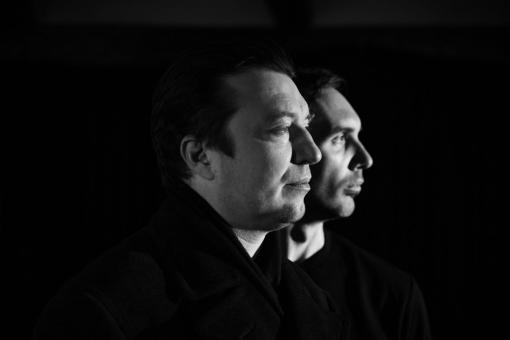Two successful brothers whose relationship was interrupted by World War II. Two geniuses who made Brno famous. Two people who never met again. Meeting Brno, in cooperation with ProArt and No Feet, is presenting In the Footsteps of the HAAS Brothers on the anniversary of the murder of Pavel Haas in Auschwitz (17 October 1944).
As part of its year-long activities, the Meeting Brno Festival presents a programme honouring the memory of Pavel Haas, a world-famous composer who was a victim of the Holocaust. The programme will begin on 17 October at 6:30 pm at Náměstí Míru with a walk through the Masaryk Quarter. The main stop of the walk will be the new Pavel Haas memorial plaque at the corner of Havlíčkova and Rudišova Streets, where Pavel Haas lived in 1935-40. Ondřej Pivoda, musicologist from the Moravian Museum, and Jiří Plieštik, author of the portrait on the memorial plaque, will talk about the composer's life and work. The walk will end at the No Feet dance studio on Vaňkov Square (formerly Brněnka), where a reprise of Martin Dvořák's production HAAS_days after glory will take place at 20:00.
The author of the idea of the evening about the Haas brothers is Matěj Hollan, who has lived in the neighbourhood of Vaňkov Square all his life. “Where else should this work be staged than on Vanek Square, where the plot of the entire production begins. Pavel Haas is a personality who should always be remembered. A pupil of Leoš Janáček's master school with a completely distinctive expression and a great future, which he was not given. The motto he wrote down on the sketch of his Wind Quintet Op.10 is unfortunately more than indicative: "The bird flew to the sun, flew, flew and did not reach it...". So we can only celebrate what he has left us here and imagine what breathtaking compositions he could have written if he had really flown further and higher."
Martin Dvořák's original production HAAS_Days After Glory, which premiered last year for actor and dancer, is based on available sources about actor Hugo Haas and his brother Pavel, who died in 1944 in the Auschwitz concentration camp. The concept is based on their imaginary conversation before Hugo's death, which recapitulates and looks back on his life. The actor introduces Hugo Haas, the dancer of his brother Paul. The musical aspect of the production is based on the chamber music of composer Pavel Haas and the film work of Hugo Haas. The music is composed by Jan Hanák Sonority. The talking dancer represents the plane of the dead brother Pavel, full of fantasy, symbolism and metaphysical or non-literal, while the actor represents the world of the still living Hugo Haas with his pains, insecurities, past and reality.












No comment added yet..